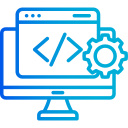Impact of Open Source Tools on Modern Software Development
Open source tools have emerged as fundamental pillars in the evolution of software development practices. They have significantly influenced how developers create, collaborate, and maintain software projects across diverse industries. By enabling a transparent and collaborative ecosystem, open source has transformed not only the accessibility of essential tools but also the standards of quality, security, and innovation in modern development. Organizations and individuals now leverage these tools to accelerate delivery, reduce costs, and engage with a global community that continuously enhances technological capabilities.
Democratization of Software Development
Lowering Entry Barriers
Open source tools provide free or low-cost alternatives to proprietary solutions, making advanced development environments and frameworks accessible to a global audience. Aspiring developers and small organizations benefit immensely, as they are no longer limited by financial constraints or licensing fees. This accessibility fosters inclusivity, allowing diverse perspectives and ideas to flourish. As a result, the software industry sees increased participation from regions and communities that previously lacked the resources to engage in cutting-edge development, paving the way for a more equitable technology landscape.
Enabling Global Collaboration
The collaborative workflow intrinsic to open source development encourages contributions from developers around the world. By providing transparent codebases and open communication channels, these tools facilitate knowledge sharing, peer learning, and rapid iteration. Developers can work on complex problems together, regardless of their physical location, cultural background, or affiliation. This global cooperation leads to more robust and innovative solutions, as unique experiences and expertise converge to address challenges collectively.
Bridging Industry and Academia
Open source tools serve as a vital link between academic research and industry practices. By using real-world tools in educational settings, students gain hands-on experience with the same platforms employed by professionals. Conversely, academic research can directly inform and improve open source projects, ensuring that theoretical advances quickly translate into practical applications. This reciprocal relationship accelerates the adoption of emerging technologies while better preparing the future workforce for industry demands.

Rapid Prototyping and Iteration
The abundance of open source libraries, frameworks, and platforms allows developers to build and refine prototypes with unprecedented speed. By leveraging reusable components, teams can experiment with ideas and test hypotheses without extensive up-front investment. This facilitates a culture of continuous improvement and experimentation, where feedback loops are shortened and new features or products can be validated quickly. Ultimately, the result is a more dynamic and responsive development process that can swiftly adapt to changing requirements.

Collaborative Problem Solving
Open source fosters an environment where collaborative problem-solving is the norm. Complex challenges, such as security vulnerabilities or performance bottlenecks, are addressed collectively by a global network of contributors. This collective intelligence often leads to innovative solutions that might not emerge within closed development environments. Through code reviews, issue tracking, and public discussions, open source communities ensure that solutions are thoroughly vetted, refined, and shared, accelerating overall innovation in the industry.
Previous
Next
Enhancing Quality and Security
Peer review is a cornerstone of open source philosophy, where code contributions are subjected to comprehensive examination by a diverse group of developers. This process uncovers hidden bugs, identifies code smells, and ensures adherence to best practices. The distributed nature of review ensures that multiple perspectives are applied to each contribution, increasing the likelihood of detecting errors or vulnerabilities before they reach production. Over time, this rigorous process results in more stable and maintainable codebases.
